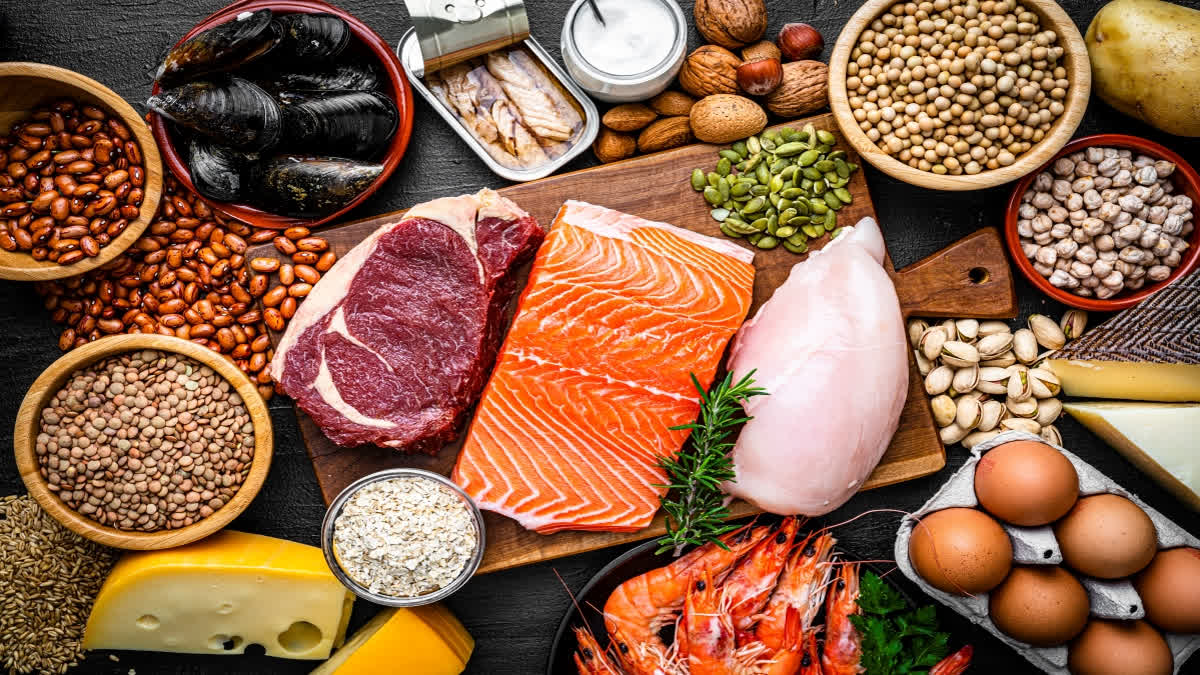Hyderabad: National Protein Day, an annual celebration in India, is observed every year on February 27 with the purpose of emphasising the crucial role proteins play in our diet. Proteins, the building blocks of our bodies, are sourced from both animal and plant origins, contributing to the development and maintenance of our overall health.
Theme 2024: The theme for this year’s National Protein Day is ‘Solve With Protein’, announced by the ‘Right to Protein’ initiative, powered by the U.S. Soybean Export Council (USSEC). This theme is set to encourage individuals, businesses, and industry leaders to collaborate in addressing the growing demand for protein-rich foods. The initiative aims to deliver accessible protein solutions across India and the broader South Asian region.
History: Established in 2020 by the Right to Protein awareness campaign, National Protein Day had its inaugural celebration on February 27, 2020. This national health initiative has since been instrumental in raising awareness about the importance of protein in our daily lives.
Significance: Proteins are vital as the body's building blocks, playing a crucial role in body development and functioning. Hormones and enzymes, essential components of the body, contain proteins, making them indispensable for life. However, it's crucial to maintain a balance, as excess protein consumption can have adverse effects.
Balancing your diet: A balanced diet is key, incorporating sources of protein, carbohydrates, and healthy fats. This ensures the body receives an adequate amount of protein, promoting overall health.
Variety in protein sources: Diversify protein sources across food groups to ensure the intake of all essential amino acids. Nutrient-rich options include nuts, seeds, lentils, beans, eggs, fatty fish, and Greek yogurt.
Nutrient-rich protein sources:
- Nuts and seeds: packed with protein, healthy fats, and fiber. Enjoy as snacks, sprinkle on salads or yogurt, or add to smoothies and baked goods.
- Lentils and beans: These are abundant in protein and fiber. Cost-effective options for soups, salads, stews, and dips.
- Eggs: A versatile and budget-friendly source of protein, vitamins, and minerals. Enjoy it roasted, boiled, or added to baked goods.
- Fatty Fish: Salmon, tuna, and sardines are rich in protein and omega-3 fatty acids. It promotes heart and brain health. Aim for 2-3 servings weekly.
- Greek yogurt- Creamy and rich in protein and calcium. Enjoy it plain, with fruit, or as a base for dips and sauces.
- Proteins for Vegetarians: Tofu, tempeh, nuts, and seeds are excellent plant-based protein sources. High in fiber and essential nutrients for vegetarians and vegans.
Symptoms of protein deficiency:
- Skin, hair, and nail problems.
- Loss of muscle mass.
- Increased risk of bone fractures.
- Bigger appetite and increased calorie intake.
- Risk of infection.
- Fatty liver.
- May inhibit proper body growth in children.
Different needs for every age group: Protein requirements vary based on age, lifestyle, and physical activity. Generally, a healthy and physically active individual needs approximately one gram of protein per kilogram of weight. However, lifestyle considerations should also be factored in; the protein needs of a labourer differ from those of a sedentary worker.



